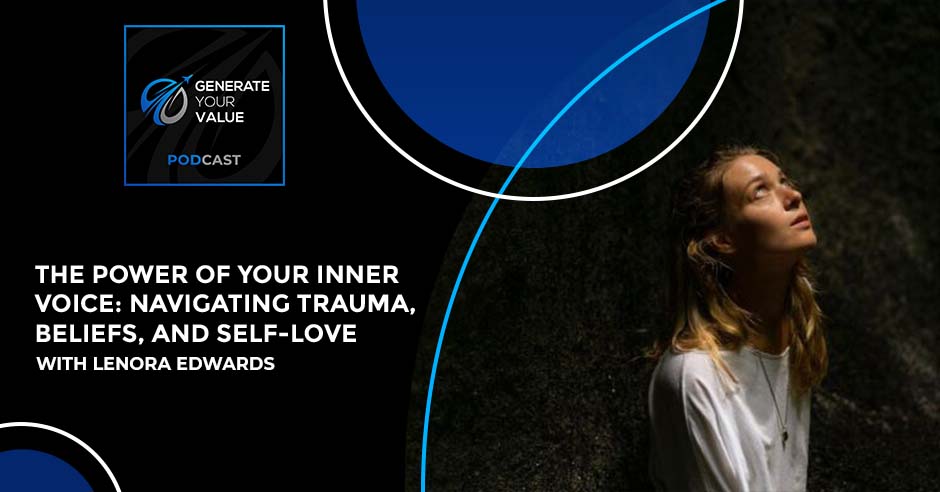What we say to ourselves really does matter. Our thoughts create the very foundations of our beliefs that translate to our actions and the results we get. That is why it is very important that we learn to be aware of the language we use to speak to ourselves, understanding both our internal and external voices. Helping us navigate this is no other than the Voice Lady herself, Lenora Edwards. She is a board-certified speech language pathologist devoted to empowering people through the art of communication. In this episode, Lenora takes us deep into the power of language as it relates to trauma, beliefs, and self-love. What is trauma and how does it affect the results we get to have? How powerful are affirmations? What is the dynamic between belief, confidence, and mindset? Where does this apply to leadership? Lenora answers these questions and more. So tune in and start the process of wanting better things for yourself, beginning with the way we speak to ourselves.
—
Listen to the podcast here
The Power Of Your Inner Voice: Navigating Trauma, Beliefs, And Self-Love With Lenora Edwards
I‘m your co-host, Zach Levy. I’ve been out for a couple of episodes but it’s so good to be back. Andy, it’s good to see you.
It‘s good to see you without glasses.
At least for the time we have known each other and well beyond that, it has been glasses. Now, it’s a whole new face.
Zach had LASIK surgery. I got George Michael with the song Freedom ringing in my head.
It makes it a lot easier to ride a bike in the wintertime without glasses. There’s no fogging.
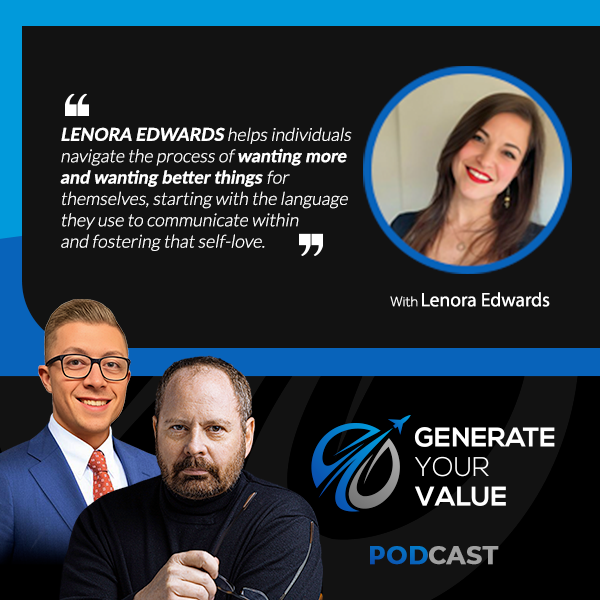
It’s less expensive and less having to keep track of something.
I‘m excited to be back for sure.
We have a great episode lined up for you. We’re bringing in a kindred spirit. Hopefully, by the time of the end of this conversation, you’re feeling inspired. If not, we haven’t done our job today. It’s the way that I’ve seen it. Our guest is Lenora Edwards. She comes to us from the great state of Pennsylvania. I’m not quite sure if it’s go Eagles or go Steelers but maybe we will find that out later on in the conversation. As I typically do, let me read Lenora’s bio, and then we will bring her in and have a wonderful conversation.
Lenora Edwards, widely known as the Voice Lady, uniquely combines her clinical expertise and various certifications, empowering individuals to communicate powerfully from within so that they show up confidently in all areas of their lives. Lenora‘s approach fosters genuine effective self-expression, paving the way for individuals to lead the life they envision. For over a decade, as the founder of DTB Horizons, Lenora has been helping people break free from unproductive communication patterns, transforming internal barriers into external confidence and clarity. With that being said, Lenora, welcome to the show.
Thank you so much for having me. I like how you said the song that you were singing in your head, Andy. The song that I’m singing for Zach is I Can See Clearly Now. How are you doing?
We’re doing great.
I’m very glad to hear that.
Lenora brings a unique approach to this inspirational conversation about “What’s my why? What kind of life am I going to create for myself?” Our questions are going to focus on that slant or that pathway to achieving that mindset or that intentionality in that direction. Zach and I are big believers in the power of storytelling. We always like to lead off our conversation by giving you an opportunity to dive in and tell us and our audience a little bit about your life story and how you got to where you are.
Thank you so much for that welcome. I had a TEDx speech that I was telling about Andy. That speech goes into a bit about how I got to this point. I don’t know about you but self-talk is something incredibly important to me, and I didn’t realize how important it is. We spend so much time in our heads, and what we say to ourselves does matter. There was once a point in my life where I was struggling significantly with horrendous self-talk. The things that were going on in my head and the anxiety that I was experiencing were awful. A bit more was things that were going on within me were leading to other things. I didn’t know how to cope. I didn’t know how to manage all that was going on.
What we say to ourselves really does matter. Share on XI had an eating disorder that was spiraling drastically out of control for a very long time, and I hid it for a long time. It wasn’t until I was getting my second false tooth while I was sitting in the dentist’s chair because of the things that I was going through. I needed a second false tooth. At the end of that appointment, I thought, “Maybe there’s something you don’t know yet.”
I’m somebody who has always loved personal development, being able to learn from other people, reading books and blogs, and watching videos. I love all of that but it wasn’t enough for me. I wasn’t able to help recalibrate my self-talk enough that I was able to stop this eating disorder spiral that I was stuck in. When I started to reach out to professionals and understand more about how to talk to myself and get those changes so that I feel the difference, that’s when everything changed. It’s one thing to say, “I’m happy, healthy, and wealthy,” 300 times but if you have an internal voice that’s going, “You are an absolute liar,” it’s a different story, and that’s a battle that a lot of people struggle with.
I have had a self-esteem journey all my life. I know at least from the theme perspective what you were going through because I had the same types of conversations going on in my head throughout my mid-twenties before I got into therapy and started dealing with those areas. One of the words that I constantly keep hearing in this field is the word trauma.
Generally speaking, when we hear the word trauma, we think of the trauma center down at the hospital. Somebody has been in a major accident, some major weather event occurred, or something where they have been seriously injured. We put them in an ambulance and took them to the hospital to the trauma center to deal with the trauma of physical well-being. In the line of what you do, how would you define the word trauma outside of the physical world? What kinds of things come to mind when you hear the word trauma with the clientele that you deal with?
The way that I look at trauma from the things that I’ve studied, trauma is being in an accident or these unthinkable acts of abuse and physical pain. People are experiencing trauma that way. We need to start reshaping the way that we define it. That’s how our culture defines it. How our nervous system defines it is completely different. Our nervous system defines it as anything overwhelming to the nervous system. It captures the information and then stores it in our body.
A fun fact is our body is 100% memory. As we’re experiencing the world around us, our brains are constantly doing three things. It’s deleting information, distorting information, and generalizing information. When it comes to events that make us feel bad such as getting yelled at or even being in a fight, and I’m not the only person who’s ever been in a fight with somebody, or when we’re in a fight with somebody, we can get a familiar feeling.
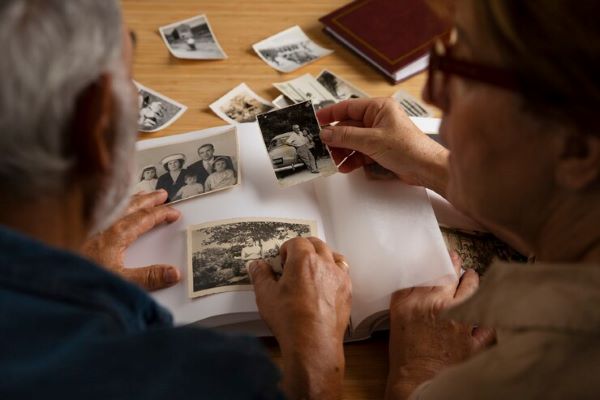
Sometimes we call it that sinking feeling in the pit of our stomachs. When we get that feeling, that is our nervous system saying, “Here’s where you store this information.” It’s not just that one fight that you are in at the moment. It is every single fight that has made you feel this way in the past. This compounds on itself. That’s why as you experience more fighting, that feeling gets stronger and you feel worse. It’s because your body remembers. Because your body has that information, what I do with my clients is help them clear out that information.
It’s understanding that your body is holding onto this. Your memory captures it and says, “This is important. We cannot forget about this.” That’s a great thing. We’re designed that way. Thank goodness. This is how we learn to consistently run from animals. This is a great thing. What is difficult at times is truly allowing ourselves to process the emotions that we have experienced.
As we’re starting to see in 2023 going into 2024, this emotional intelligence component is getting better. People are starting to open up to the conversation about it but how we clear it or resolve that trapped information that’s inside us is unique to each of us. We are ultimately the only individual who can clear it and process it from our nervous system.
When you have an experience, it’s not that you are forgiving the individual in that fight or you’re forgiving the person who did something. What you are doing is you’re taking the information that’s stored in your body and going, “I get it. I don’t have to agree with it but I don’t have to hold on to this pain.” That’s where you get that separation where people can start to feel better because they’re not carrying around all this heavy unprocessed emotional information.
That’s huge. The fact of leading in with self-talk, we have all gone through a journey with self-talk and self-esteem. I joke with people. One of my and my wife‘s main hobbies is bodybuilding. The reason I got into bodybuilding is because I didn’t want to be short and skinny because I couldn’t fix the short part. On the effect of emotional trauma, EQ, and everything, this is something that I’ve been digging into and studying with a mentor of mine for a long time. We go TBFAR. Thoughts lead to beliefs and feelings, which lead to actions and results. How does trauma affect that cycle in itself?
I like to call trauma moments of overwhelm. Even as I talk to the people who are close to me and say the word trauma, they say, “I don’t have any trauma.” While that may be true to their definition of how they define trauma, how their nervous system defines it is different. Think of a moment of overwhelm. Let’s say in sixth grade, you were up on stage and you had to say this part in your speech. You somehow messed it up, and the entire class was looking at you.
When all these eyes are on you, that can be a moment of overwhelm to your nervous system. From there, you may never again want to speak in public because your nervous system took it as fight, flight, freeze, or fawn. Because of that panic or distress in your system at that moment, your nervous system captures all the information and holds onto it. When you want to speak to someone, whether it’s in public or ask somebody out on a date, if you can’t have that ability to go up to somebody because you are held back by a feeling that is causing you stress and distress as you’re going to do something, that’s how it impacts you.
It will not let you. Your nervous system is ultimately keeping you safe so that you don’t feel that way again because at that moment when you were in sixth grade, and everybody was looking at you, either you captured the information or you died. That’s how your nervous system views it. That’s a simple example of being on stage or talking to a class but that’s what it is in your nervous system. When you say, “I don’t like talking to people,” there’s a reason. We need to go back and figure out that reason, and help that part of you understand that you’re safe. You can let go of the intensity.
It’s a lot of taking the time to process it.
I‘m eternally grateful. One of the things I accomplished in 2023 was to work with a forgiveness coach. It’s through working with that coach that I got educated about how the body holds on to the traumas because I’ve been through hours of therapy, reading self-help books, and watching videos. Up here in the mind, I’ve cleared out all of the traumas but that doesn’t necessarily mean that the body has released all of that energy.
There are different parts of the body that hold onto certain things. For me, it was in the liver. That’s where we work with forgiveness to release all that energy that has been in there for 40–plus years from that effort. Even though I cleared it out of the mind per se in terms of mindset, beliefs, and so forth, it doesn’t mean that the energy has been cleaned out from the rest of the body.
We know that we’re 5% conscious and 95% subconscious. When you’re trying to fight a war in your head with 5% of you up against 95% of you, you can start to understand this is why people have a lot of difficulty. It makes sense. How can we help?
Let’s take me as an example for looking at this belief, thought, emotions, behavior, and action cycle. What I learned from therapy was that my relationship with my father created some beliefs that I had about myself, which created negative self-talk in my head, which then led to emotions and anxiety, “I’m not good enough.” I was inside myself. I wasn’t outgoing in high school and college. It led to certain behaviors.
If somebody is going through that same cycle, where is the first point of attack? Are we looking to change behaviors first? That’s the feedback loop back into the beliefs. Is it straight at the beliefs with a machine gun? Where is somebody going to start their efforts if they’re truly going to take hold of this and say, “I want a different life for myself.” Where is the first point of attack in this cycle?
I would think the first point would be to reflect on that. What do you think it is that you need? What is it that you want? Especially when you’re having these conversations with yourself. If people say, “I’m talking to my subconscious,” ultimately, your subconscious responds to the first voice that you hear. It speaks the softest. You want to edit it and you’re going to feel like you’re making it up. These are the hallmarks of the subconscious. If you think, “I want to change. How might I start? What’s the first thing that comes up? What’s the next thing that comes up? What’s the third thing?” Write down three possible solutions that may start to work for you.
Oftentimes when people come in and work with me, I’ll say, “What brought you to talk to me? What’s important to you about why we’re having this conversation?” As they start to talk, and because I’m listening very carefully for certain things, I start to drill down to their values and their criteria, “What’s important to them? How do they know what’s important to them?”
If they’re telling me whatever it is that they may be telling me, let’s say, “I’m talking to myself in a critical way.” “How do you know?” As you keep talking to them, they’re telling you what they’re experiencing and how they’re experiencing it. As we keep going, we often get back to that core moment of when that event occurred. When we’re little and young, we have an authority figure talking to us or even an authority figure yelling at us, or even a moment of overwhelm being in a fight with other kids and not understanding it. We often think, “Children are resilient.” That is true but they’re still getting impacted at these early moments.
A lot of the work that people do, whether it comes to personal development, therapy, or doing a variety of self-care things, ultimately, it is you coming back to you to take care of you and help you. However you want to label it, that’s ultimately what’s happening because you are the only one that can get you to change. You are the only one that is going to get you to where you want to go. When you can understand, “It’s between me and me,” I get that.
You are the only one that can get you to change. You are the only one that is going to get you to where you want to go. Share on XI do think it’s different for everybody where they start. I love that you, in long story form, started with why it’s that way. Always start with why. We have talked about that so many times. Solidifying everything is awesome.
It’s the power of the word.
That was what was big for me in identifying it. It’s weird. Andy, I have a very similar story. It started with trauma issues with my dad and the relationships early on in childhood. Whether it’s the subconscious voice or active voice, would you say that’s the end way or the pathway to reaching the realm of deep–seated inner belief that’s down here?
Absolutely. I do love the question why. I also think it’s very important. This is why I love language. The resolve of everything comes back to language. Language is the key to how we talk to ourselves, not only how we talk to ourselves but how we ask ourselves questions, and not only how we ask ourselves questions. What’s the vocabulary we’re using? What’s the intonation that we’re using? I love the question why. It’s also hilarious because sometimes you have to be careful with the question why? You think, “Why am I such a jerk?” That might generate such a long list. “Why is this important to me?” That’s a different list. Why and then whatever other words you’re adding to that are truly important.
It’s the voice leading to the deep-seated beliefs or the foundational beliefs of our being. As you said in the beginning, so many people struggle with imposter syndrome when they’re trying to change where they’re headed and their self-talk. For a long time, I felt like I was taking my head and beating it against a wall over and over because that voice was going, “That’s not you. That’s not who you are. You’ve always not done what you said you were going to do,” or whatever that belief system we’re trying to change is.
Especially when there’s a critical voice. When it comes to the subconscious, that is the opening. That is the best way that you are going to get change but it also has to be in a way that is good for you and works for you. There’s a variety of breathing techniques. There’s hypnosis, inner child work, and journaling work. There are so many different access points, and whatever works for people is great. I like to consider them tools in a toolbox. I have lots of things, “Which one is going to work with me today?”
In the work that I do, we often say it’s hard to be the driver and the passenger at the same time. If you’re trying to have this conversation with yourself and navigate the entire inner world that you’re coming up with, that can be hard. When I’m working with clients, technically, I am the driver only to help keep them on the path of this is where we’re going. They’re the passenger as in they don’t have to worry about all these other pieces. I got that, “Let’s focus on you.”
When that critical voice comes up, who is it? There are lots of different people who impacted us. What’s the tone that they’re using? What’s the intention in their words? How is it making you feel? How do we start to reframe it? Whether it’s a younger version, a memory, or whatever you would like to call it, ultimately, there’s a moment of you that’s captured in this moment. How do we get you out? How do we make sure you’re safe? What do you want to see happen? Being able to do that is incredible.
If I could explain to you the amount of profound shifts that not only I’ve experienced personally but that I’ve walked my clients through, these a-has, downloads, and epiphanies are where the magic is. It’s getting that shift. As you keep doing that, your internal voice of that support, encouragement, confidence, or ongoing positive one that you like gets stronger and stronger. That critical voice gets diminished. As you’re living your life, it becomes, “I know that voice. I recognize that voice. I don’t have to pay attention to that. I know you’re just a signal. It’s okay.” It’s like a signal on our dashboard. They still come up but now, you can manage it. That’s the best part.
Talking about tools in a toolbox, one of the tools that I used that helped me out was to sit at a computer and type. I had about twenty affirmations or I–am statements that I typed out, printed on a piece of paper, and taped to the mirror of my bathroom. Anytime I was in the bathroom, whether it was getting ready for my day in the morning or other times during the day before I left the bathroom, I was saying those affirmations out loud.
The number I’ve heard is 66 days to change a belief about something, whether it’s yourself or something else, or you’re picking up a skill or a talent. It takes 66 days for that to get flipped or ingrained so that it’s now a new belief, skill, or talent about yourself. I did it much longer than two months but that’s probably the biggest tool or the tool with the biggest impact for myself in changing those limiting beliefs that I had about myself back in the day. How powerful are affirmations for what you’ve seen in your practice for clients?
I like to do questioning affirmations, which is when you ask yourself a question such as, “Why am I able to notice more that I’m so loved? Why am I able to notice more that things are becoming easier for me?” We are a question-and-answer machine. We are the original Google search. It’s nice to be able to give your brain a question, and then it will generate its reasons for it. That’s wonderful.

Affirmations are for sure great. I use them. There was a point in time when I would say mine. It told me that I was full of baloney. They were not having the same impact on me even though I would say them. However, I would say them. It is very personable and personal how people go about wanting to navigate their inner world. Affirmations can be a phenomenal source.
A colleague of mine had massive shifts by listening to audio on YouTube in the evening, and that was for him. If that works for you, put it in your toolbox, keep going, hold onto it, make sure you remember, “This works for me,” and keep at it. Take care of that tool because it’s going to continue to serve you the more you care for it. How about you? Zach, what’s your favorite tool to use?
I love that take on the question affirmations. I‘ve never even thought about that or breached that. Always ask the question why because it creates a conversation within yourself instead of just telling. In the sales world, I teach people statements and push and pull questions. If you ask your subconscious why you’re noticing that, your subconscious technically is saying that as a client would say what you’re trying to lead them to make the best decision. I love that. It has been a lot of thinking. I write down goals and affirmations twice a day. I use an old–school paper planner and a pen. I joke with people that I was born in the wrong generation when it comes to technology and everything. I prefer paper, pen, and corded phone if I’m being real. That’s why Andy and I are such good friends.
He’s an old soul. I recognize that. We’re about 30 to 40 years of age difference but you wouldn’t know it from our conversations.
My brain goes a million miles an hour in eighteen different directions. For example, when I sit down if I watch a movie on Netflix, subtitles have to be on for me to be able to pay attention. It’s the words. Saying something sometimes doesn’t drill that in. Writing it down in your brain, processing, and stroking those letters out has made a difference because I tried just saying them. Write them down and then start implementing those questions as well. I‘m intrigued by that.
I emailed Andy. For the audience, I put in the free book that I have created, and it’s called The Power of Words. In that, I talk about questioning affirmations and give two pages worth of questioning affirmations. They’re right there for you, Zach.
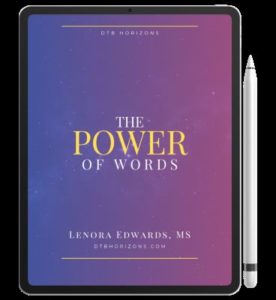
I’ll make sure I’ll get those over to you, Zach.
It’s an ongoing process of wanting more and wanting better things for yourself. I love that you mentioned the authority. When we are the authority to ourselves, “We’re going to get up at 6:00. We’re going to do this,” naturally, you’re rebellious to your own authority. I love the word self-love, and it was one that I’ve explored because our culture would have you think self-love is a candle and a bubble bath, and then you’re good to go. That’s not it.
Self-love is taking care of yourself, how you care for yourself, your self-talk, how you do things, how you care about your home, how you care about your body, and how you care about the nutrition you eat, and then also, sometimes it is tough love, “I know you’re tired but we need to push, and then we will take a break. You need to take a break because you’re pushing way too hard.” It’s being able to know yourself well enough to say, “I can push. I need a break.”
Self-love is taking care of yourself. Share on XYou’re talking about the hallmarks of self-leadership, which is what this show is all about.
It’s the same as working a muscle. In the health, fitness, and bodybuilding world, that was what I thought was going to be my career, and then I didn’t like the big–box corporate world. You can overtrain where you’re losing muscle mass versus building it by taking time off. I love that because those correlate very well.
That’s a great point. Self-leadership is self-love with a different label.
In your eyes, what is the dynamic between belief, confidence, and mindset? I‘ll talk from my perspective and let you chime in. Belief is the starting point. It’s the fuel in the gas tank that enables you to have some confidence about yourself to want more for yourself and say, “I‘ve got positive affirmations in the talk that’s in my head. I have a strong belief that I’m capable of doing things in this world in this life, and because of that, now I have some confidence in myself. It’s not full confidence but maybe it’s 50%, 60%, or 70% enough to get me going.”
That then creates an environment for ourselves where we can develop a mindset to say, “I want to grow into the person I was created to be. I want to have an impact on this world. I want to understand the world better and where I can fit in because I have a why for myself now. I have a belief in myself. I‘ve thrown off all the crumbs that are on me that was the bad belief about myself.”
“I fell off the horse, I’m dusting myself off, and getting back on the horse. Now I have confidence that I can ride this horse into the prairie. I have this mindset that I’m going to be an adventurer, go out into the world, see what the world’s about, and understand it better or where I can make an impact.” To me, that’s the dynamic between those three but it all starts with the belief because if you don’t have that fuel in the fuel tank, then the confidence, the mindset, and everything else is not going to come.
I love the way that you said that. Ride off into the sunset across the field. It’s a great visual. If you think about it, when are you confident? If you have to go and do something big, are you confident before it? Are you confident after it’s done? When I think of confidence, I often think of, “I want to be less afraid because I’m not going to be confident until after I know.”
Even with the TEDx that I did, there was a period of time going up to it that you’re nervous, and you’re like, “I don’t know if I can do this.” There’s this ongoing battle, “Yes, I can. No, I can’t,” What’s the weight of it? Is it 70% yes and 30% no? That’s pretty good. Let’s keep going in that direction. Now that it’s done, the action has now been fully completed. Now it’s a different level of confidence.
Going in, if you’re thinking, “I want to be less afraid,” that’s movement forward. You might not have the confidence until after you’re done, or even if you have a smidgen more than you’re level of fear, you’re in the right area. Keep going little by little. It’s natural for us to have this fear. We often think, “I wish I was fearless. I wish I didn’t have all this fear.”
It’s okay. We’re human. We’re designed that way. We can understand, “This is my programming. I’ve been designed this way. I’m very normal. I’m functioning well. I have this fear. How do I work with it? How can I use it to be my friend? How can I use it to harness it in the right direction so I can keep going and ride across the field on my horse feeling much better?”
Somebody takes from where they are to build the life they truly want, whatever that may look like. You would say that it’s a non-negotiable and then that we have to work on first our belief, mindset, intention, and that whole creation cycle for the life that we want.
How you think it’s going to look and how you think you’re going to get there is not the way it’s going. Your destination may look very similar to what you want. Stop trying to figure out the how because it’s not going to be very clear. There’s an amazing quote, and it’s from a book called The Boy, the Horse, the Fox, and the Mole. This book is stunning. It’s one of my favorites. The boy says to the horse, “I can’t see a way through.” The horse says, “Can you see the next step?” He says yes. The horse says, “Just do that.” That’s incredibly powerful.

My mom had a figurine from that story. I don’t think we have it anymore.
It’s close by I know for sure. It’s somewhere over here.
It’s the four animals stacked on top of each other.
It’s a great book.
Where we’re trying to end up with this conversation for folks is to say, “Keep going.” Zach has heard me talk about this many times. I had a sign in my office when I was at Boeing that said, “The best way to predict the future is to create it.” I wanted it staring all the time at the people who would come into my office. We would have conversations and so forth to say, “The future is unknown.”
There’s some risk to the future. You don’t know exactly how you’re going to get there but you can create an environment for yourself where you’re going to reduce the risk that you’re not going to get the life that you want for yourself. Keep going. Have that vision for what you want your life to be and keep working on it because it’s not a light switch.
We have talked a lot on this show about the “Be, Do, Have” model that I use in my coaching about the very complex engineering formula of X plus Y equals Z. Where do you plug in those three words? A lot of what we have talked about is the tools of the self-leadership path in working on the Be part of that, “This is who I want to be in the world.” My being is a being that says, “I‘m not good enough.”
I have had traumas in my life, and they have given me negative self-talk. That’s who I’m being in the world, and I don’t want to be that way in the world. I want to be positive. I want to be a human being who has self-love and that program out there where I’m working on the different parts, the physical part, the mental part, the spiritual part, and the energy part of our lives.
We probably sit here for an hour talking about all the different parts and the complexity of life but can you see that as a program? I need to build a program for myself that’s going to get rid of this negative self-talk and get the right beliefs, mindset, confidence, and everything else that can then allow me to get on that horse, ride into the prairie, and go out on an adventure that’s called life. I don’t know exactly how it’s going to happen but I’m going to keep going, see what life has to offer me, and start working for me from that perspective. Unfortunately, our time is coming to a close.
This is the fastest episode we have ever recorded.
That’s because we’re talking about our favorite subject. This is stuff Zach and I would sit on my back porch with bourbon and talk about all the time.
It’s stuff I coach my people on all the time. We could do a four–hour–long episode on this.
That sounds amazing. We will do a series.
This is how this show got started. It was over a glass of bourbon and business.
We have t-shirts, “Bourbon in, wisdom out.” It works.
If people wanted to reach out to you, learn more about your business and you as a person, or get a copy of the eBook and those types of things, what’s the best way they could reach out to you?
The best way to reach out to me is on my website, it’s DTBHorizons.com, and it stands for Determined to Be Horizons. Thank you so much for having me. It was amazing talking to you. If you want to do a series, let me know.
We’re toying with the notion of doing some panels, bringing a panel of experts together, throwing a subject out on the table for an hour, and seeing what comes out.
That sounds like a great idea.
We’ve got one last question for you. Since we’re running out of time for you, what do the words generate your value mean to you?
Generating your value means to me that whatever is important to you, create that.
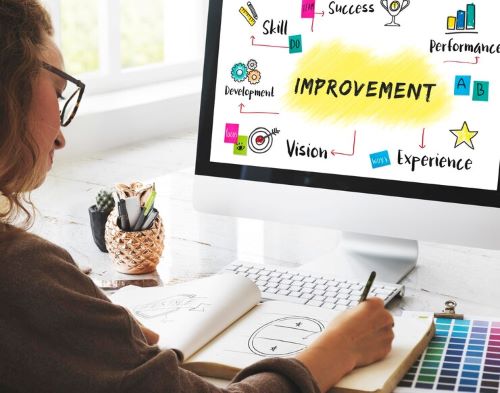
Short and sweet. We have had some folks go on for five minutes because it means different things to different people. That’s the reason why we keep asking the question because everybody is a unique individual, and those words have different meanings.
Language is incredible.
This was fantastic. We appreciate you so much for joining us.
Thank you so much for having me. It was wonderful talking with you.
Lenora, have a great holiday season. It’s great to see you, Zach as always, minus the glasses. I‘m talking about searing stuff. I‘m going to have to sear a new image in my brain now of Zach without glasses.
It seems like it changed my whole face shape.
Since I’ve known the boy, he’s had glasses on. This is all new to me.
That’s our whole show. The show is LASIK for your life so you can paint a clearer vision of who you want to be and create that life you want.
Our whole podcast, Generate Your Value, is like Lasik for your life, so you can paint a clear vision of who you want to be and create that life you want. Share on XYou dropped the bomb. We‘re going to wrap this up. Have a great day. Have a great week. We will see you next time with another great guest like Lenora. We can’t thank you enough for taking that valuable resource that’s limited in your life called time to spend with us here on the show.
Important Links
About Lenora Edwards

Lenora Edwards, widely known as the Voice Lady, is a board-certified speech language pathologist devoted to empowering people through the art of communication. Lenora’s unique technique blending hypnosis with neurolinguistic programming and Holographic Memory Resolution®, allows her to help people communicate powerfully from within so that they show up confidently in all areas of their life.
Lenora’s approach fosters genuine, effective self-expression, paving the way for individuals to lead the life they envision. For over a decade, as the founder of DTB Horizons, Lenora has been helping people break free from unproductive communication patterns transforming internal barriers into external confidence and clarity.
